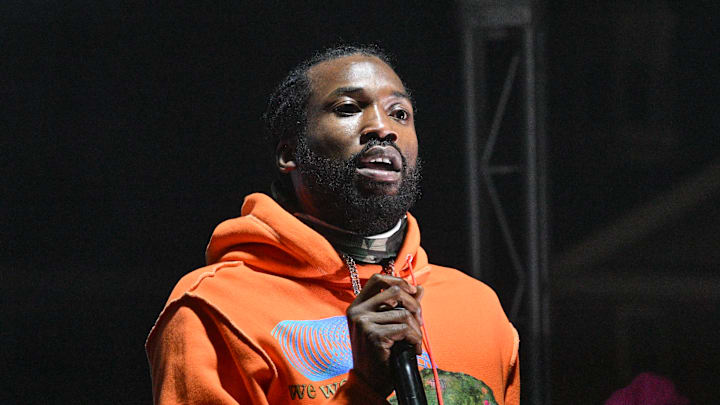Hip-hop has long been a genre that not only pushes the boundaries of music but also reflects the lived experiences and the creative expression of its artists. Recently, the use of rap lyrics as evidence in legal cases has sparked a heated debate. Meek Mill, a prominent figure in the hip-hop community, has voiced his concerns over the decision to use Young Thug's lyrics in court. He highlighted the potential repercussions for artists' freedom of speech and the art form itself.
The case against Young Thug has brought to light the complex relationship between artistic expression and legal interpretation. Meek Mill, who has been actively involved in criminal justice reform, expressed his apprehension on social media.
Meek stated that the move to lock up artists for their lyrics has left him fearful of even giving interviews. His reaction underscores the broader implications for the hip-hop community, where lyrics often depict the harsh realities of life and are a form of storytelling and personal expression.
It should be impossible to charge thug and lucci for lyrics because in the studio we all give eachother lines and don’t remember who said what after a high night in the studio…. I have done it with both of them … they both gave me lyrics b4… we all do this!
— MeekMill (@MeekMill) December 12, 2023
Supporters of Young Thug, including Meek Mill, argue that rap lyrics are frequently taken out of context and should not be used as evidence in court[^20^]. They point out that lyrics can be fictional, metaphorical, and part of an artist's persona rather than a literal recounting of events. The concern is that using lyrics as evidence will stifle creativity and unfairly targeting artists, particularly those from marginalized communities.
The debate extends beyond Young Thug's case, with advocates calling for a fair and just legal system that respects artistic freedom while ensuring relevant and reliable evidence in trials[^20^]. The Atlanta City Council has been working toward restricting the use of lyrics in criminal cases, emphasizing the need to protect the freedom of artistic expression[^20^].
As the discussion continues, the hip hop world watches closely. The outcome of Young Thug's case could have lasting effects on the genre and its artists. Meek Mill's stance highlights the importance of safeguarding the core values of hip hop. the ability to speak truth to power and to tell stories that resonate with listeners across the globe.
Related: Rick Ross and Meek Mill Unveil 'Too Good To Be True': A Hip-Hop Masterpiece Redefining Excellence
